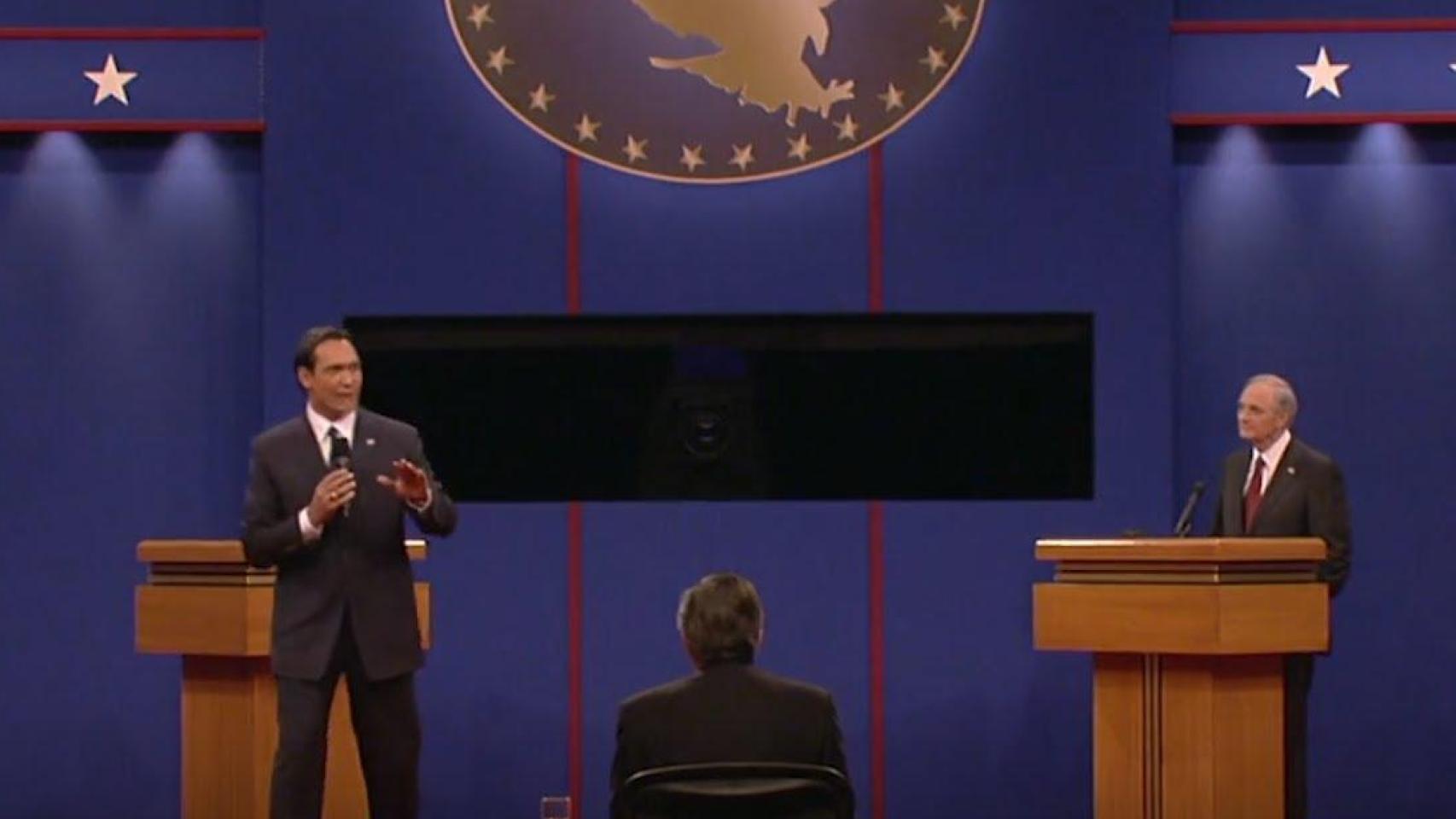Following the national and international political news is a necessary activity, but also a a source of anxiety due to the aggressiveness and emptiness of many speeches. That's why today, the day when every detail of the debate between Kamala Harris and Donald Trump will be analyzed, we remember two episodes of the series that restores hope in political exercise, and in which a presidential debate is the protagonist: The West Wing of the White House.
The first one is Game On, the sixth of the fourth season, originally aired on October 30, 2021, in which the current President of the United States, Josiah Bartlet (played by Martin Sheen), and his opponent, Governor Robert Ritchie (played by James Brolin), debate.
In this episode, the team thoroughly prepares Bartlet for the debate (a preparation that began in the previous episode) with the idea in mind that with concise language, clear ideas, and above all, his intellectual skill, he can outshine his populist opponent. Something that several Twitter users have pointed out, who immediately linked Harris's confidence in the debate against Trump to this episode.
The staff works on different strategies to ensure that Bartlet can effectively counteract Governor Ritchie's arguments. This includes rehearsing responses to possible questions and perfecting Bartlet's speech to highlight his strengths.
For example, Josh Lyman (Bradley Whitford) is tasked with creating ten-word responses to various political questions in order to demonstrate that Bartlet's campaign can connect with the average voter through concise and relatable answers. To those who say today that the debate was rigged because Harris's answers were quick and confident, the key is none other than preparation.
The episode that restores hope in politics with a presidential debate: still relevant 20 years later
'The debate', live episode
On November 6, 2005, the series aired the seventh episode of its seventh season, a historic episode because it had the particularity of being aired live, as if it were a real debate, which presented technical challenges such as maintaining dialogue fluency or ensuring that the sound was perfectly synchronized.
Titled The Debate, it is one of the most outstanding episodes of the series, not only for its innovative approach from a production perspective but for its reflective analysis of real political issues.
In this episode, the presidential candidates Matt Santos (played by Jimmy Smits) and Arnold Vinick (played by Alan Alda) participate in a debate moderated by Forrest Sawyer -a real news anchor-, where realistic discussions from the points of view of the two major parties in the U.S. on issues such as healthcare, public education, immigration, and energy are held.
Although the debate was scripted, as part of the preparation for this special episode, both Smits and Alda received intensive training in debate techniques to prepare for the live performance, an exercise that helped them to improvise effectively.
The debate was very realistic, and the candidates represented the ideological differences between them, with Santos leaning towards progressive and social policies, such as the defense of universal healthcare, while Vinick advocated for limited government intervention, emphasizing personal responsibility and the principles of the free market.
Healthcare, education, energy, immigration, and various other topics that remain relevant today were discussed, making it an episode that remains relevant almost 20 years after its broadcast.
The episode came to be considered a model of what a real debate should be: with eloquent and respectful interventions. Furthermore, it was praised for effectively presenting balanced viewpoints on various political issues, being fair to both Democrats and Republicans.
The episode attracted 9.6 million viewers, which represented a significant increase compared to the season's average. After its airing, MSNBC and Zogby International conducted a poll asking which of the two candidates had won the debate. The viewers decided that the winner was Matt Santos, with 54% in his favor compared to Arnold Vinick, who achieved 38%.
'The West Wing of the White House'
Just like The West Wing of the White House, this episode also demonstrated a great capacity to address complex issues with nuances and sensitivity, portraying an idealized version of American politics, in which the characters are very competent, ethical, and dedicated to public service.
This idealism, criticized by many, is an important part of the series' appeal, as it presents a hopeful vision of how politics could be if acted with integrity and intelligence. It is an inspiring series that today feels more escapist than ever.
*This article has been automatically translated using artificial intelligence
